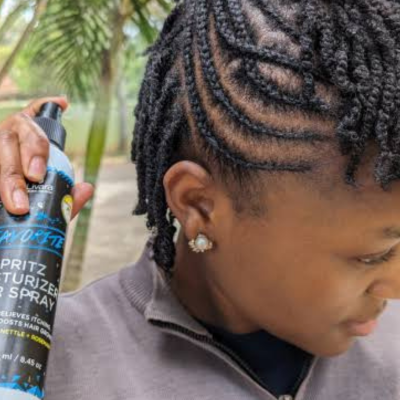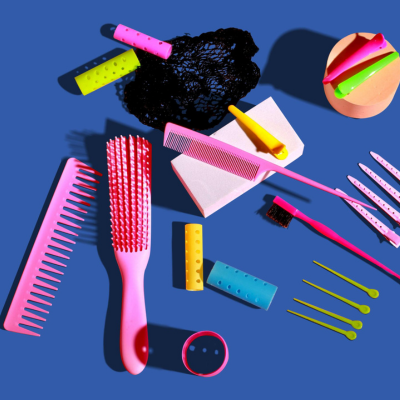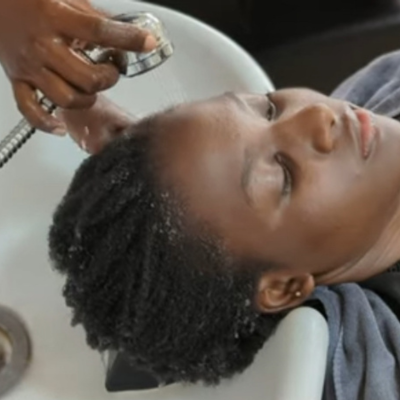- Support 24/7
- +1 (480) 468-4543
- livara@mylivara.com
How To Safeguard African Hair From Damage
The Power of Glycerin in Natural Hair Care
March 21, 2024
6 Easy Ways To Keep 4C Hair Moisturized
March 23, 2024
Africa boasts a vibrant tapestry of cultures, and its hair textures are no exception. From the springy coils of type 4A to the tightly coiled strands of type 4C, each texture is unique. But with such beauty comes the responsibility of proper care. Natural African hair, particularly the tightly coiled 4C hair dominant in East Africa, requires a gentle approach to prevent damage and breakage. Read on as we explore the science behind its unique structure and offer 6 tips for preventing damage and having your hair feeling soft and luscious.
Understanding 4C Hair
4C hair, most commonly found in East Africa, is the coiliest hair type on the hair texture spectrum. These tightly coiled strands often appear in a Z-shaped pattern and have a very low porosity, meaning they absorb moisture slowly. This low porosity makes 4C hair prone to dryness and breakage if not properly cared for. However, with the right care, 4C hair can be incredibly versatile and achieve beautiful styles like bantu knots, locs, or voluminous afros.
Tips for Safeguarding African Hair
- Moisture is Key
One of the most important aspects of caring for African hair is maintaining adequate moisture levels. Use a moisturizing shampoo and conditioner specifically formulated for textured hair to keep your strands hydrated. Consider incorporating deep conditioning treatments into your routine to replenish moisture and nourish your hair from within. - Gentle Handling
Handle your hair with care to minimize breakage and damage. Avoid rough combing or brushing, especially when your hair is dry. Instead, use a wide-tooth comb or your fingers to detangle gently, starting from the ends and working your way up to the roots. Opt for protective hairstyles like braids, twists, or buns to reduce manipulation and protect your hair from environmental stressors. - Limit Heat Styling
Excessive heat styling can weaken African hair and lead to dryness and breakage. Whenever possible, minimize the use of heat tools such as flat irons, curling wands, and blow dryers. If you must use heat, apply a heat protectant spray or serum beforehand and use the lowest heat setting possible. Consider embracing heat-free styling techniques like air-drying to reduce heat-related damage. - Use Natural Products
Choose hair care products like Livara’s made with natural ingredients that nourish and strengthen African hair. Look for products containing ingredients like shea butter, coconut oil, jojoba oil, and argan oil, which provide moisture and promote hair health. Avoid products containing harsh sulfates, parabens, and silicones, as these can strip the hair of its natural oils and cause dryness. - Protect Your Hair at Night
Invest in a satin or silk scarf, bonnet, or pillowcase to protect your hair while you sleep. These materials help retain moisture and reduce friction, preventing breakage and split ends. Additionally, consider pineappleing or loosely twisting your hair before bed to maintain your hairstyle and minimize tangles. - Regular Trims
Schedule regular trims every 6-8 weeks to remove split ends and prevent breakage from traveling up the hair shaft. Even if you’re growing out your hair, trimming helps maintain its overall health and appearance by eliminating damaged ends. However, if you examine your hair and have no split ends, there’s no need for a trim, as you could be losing new length for nothing.
Bottomline
Caring for African hair requires patience, dedication, and a commitment to using gentle, nourishing practices. By following these essential tips for safeguarding African hair from damage, you can maintain its strength, vitality, and natural beauty for years to come. Embrace your unique hair texture and celebrate its versatility while prioritizing its health and well-being. With proper care and attention, you can achieve vibrant, luscious locks that reflect your individuality and style.



